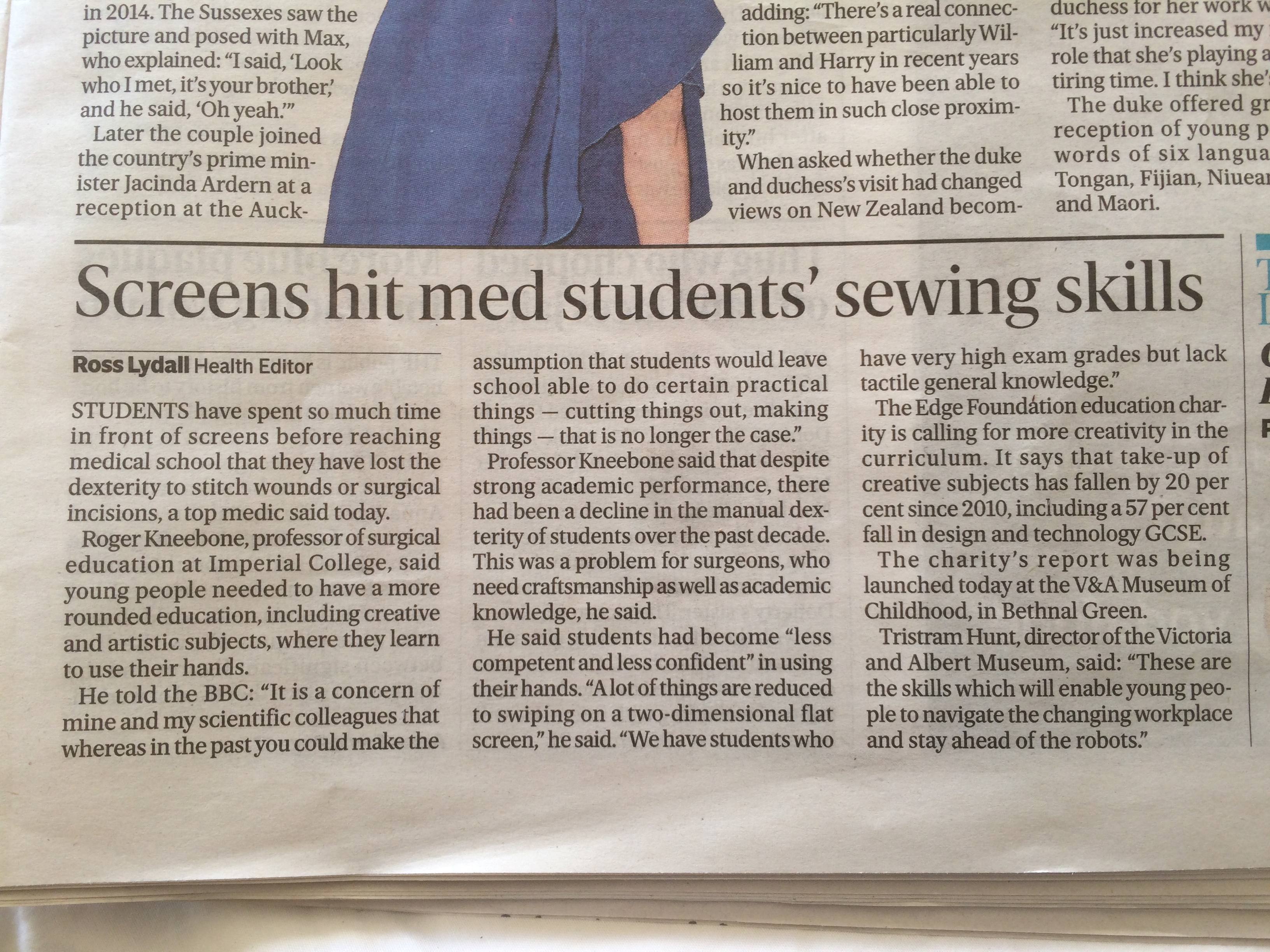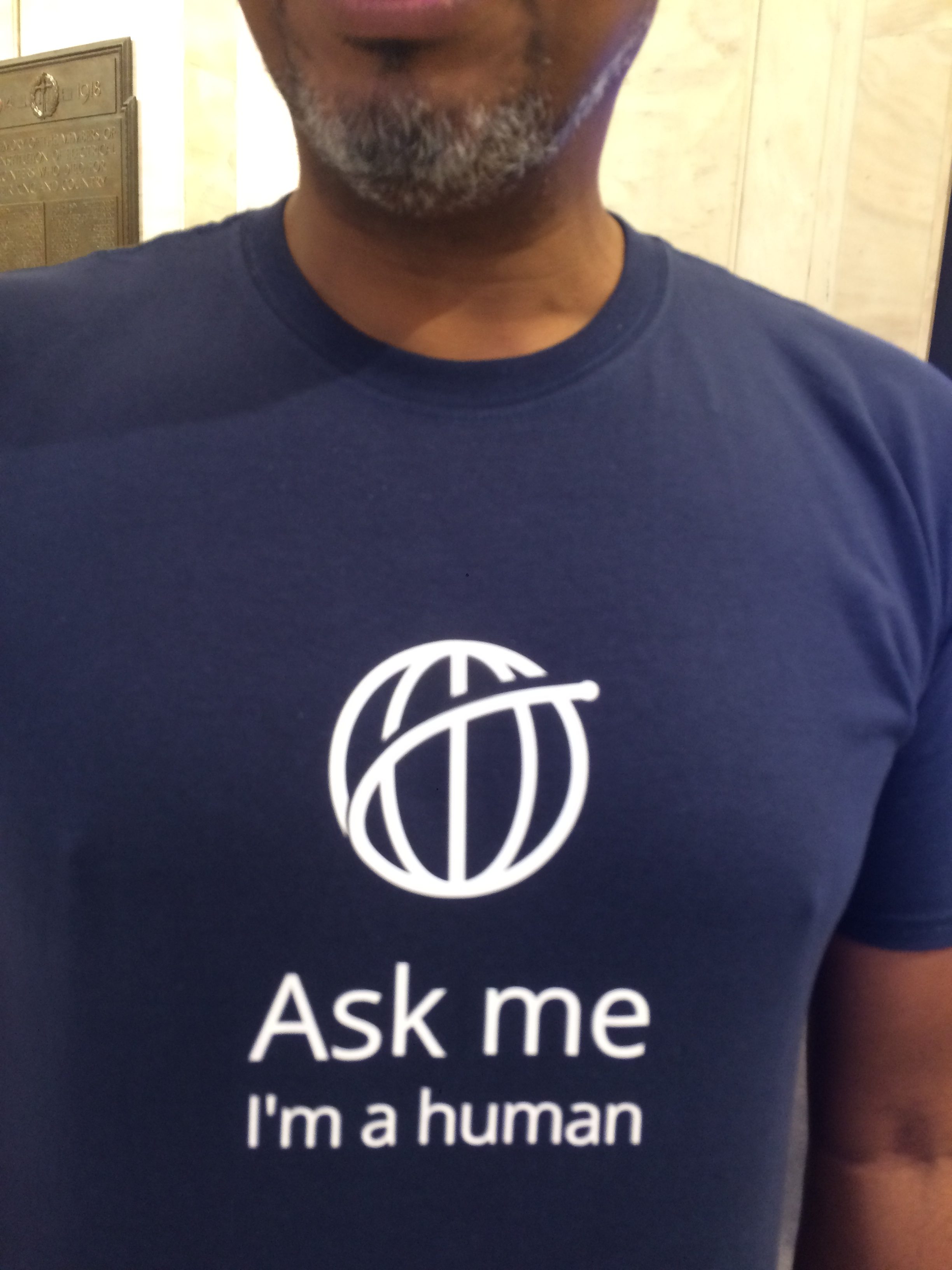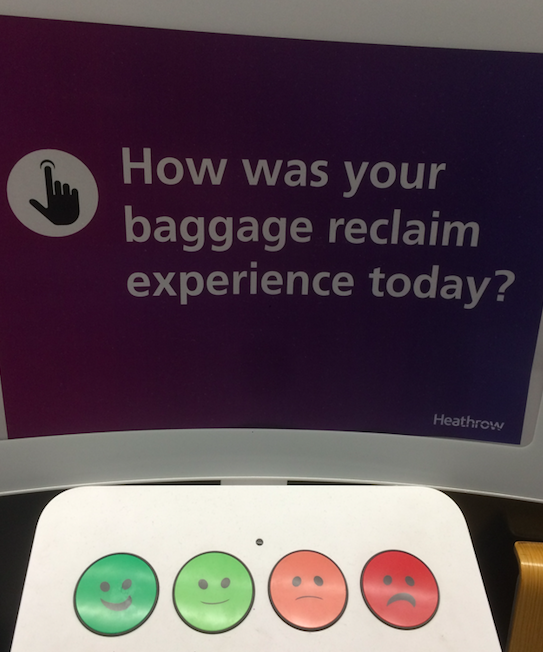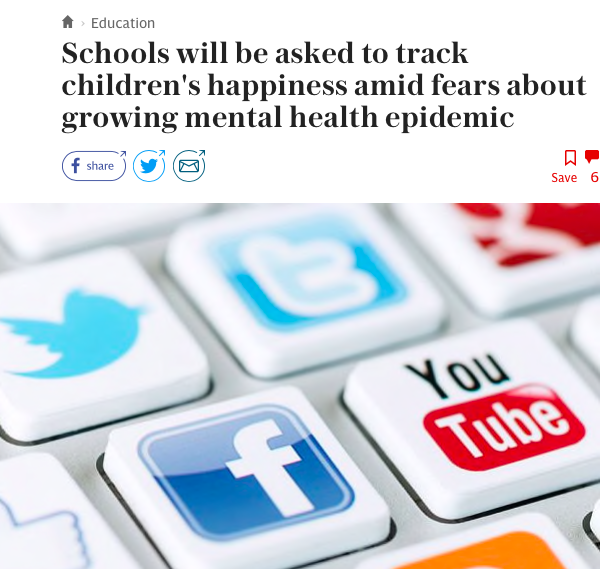Author Archives: Richard
The End of Surgery?
Cyborg Symbiosis
Oh that’s what it is…
Objects from the Future
 I love the idea of using physical objects to provoke peoples’ thinking about the future – especially objects that don’t exist just yet!
I love the idea of using physical objects to provoke peoples’ thinking about the future – especially objects that don’t exist just yet!
Worth a visit. V&A.
T-Shirt Watch
Many moons ago (I’ve never used that phrase before , where did that suddenly come from I wonder?) I wrote something on weak signals and mentioned that t-shirt slogans are a good source of weak signals, emerging trends or at least new feelings. Here’s a t-shirt from, rather weirdly, from a cybersecurity conference of all places.
Are we reaching peak vegan?
Global Strategic Trends
GST6 is just out. It’s the best publication of its type and well worth a read. Link to PDF download here.
How was it for you?
There’s an episode of the TV series Black Mirror where the main character becomes obsessed with ‘liking’ everything. This is supposed to be fiction, but nowadays it’s getting increasingly difficult to tell the difference between what’s fact and what’s fiction.
Last week I was at the airport again. I’m getting used to being asked to rate my ‘security experience’, but my ‘baggage experience’? Really? Are you serious? And if that isn’t bad enough there’s now news that UK schools are to measure the happiness of their students. At least they didn’t call them customers.
Measure the happiness of students eh? You mean ask the students how they are feeling about the endless changes of direction, the obsession with exams (narrow measurement from the age of five in many cases) and generally the stress and anxiety created by education. It’s the education system in this country, and others, that is causing the unhappiness you dimwits. Of course, if you measure something it generally absolves you of any responsibility to actually do anything, most of all to think.
Trend of the Week
We’re had dark tourism (visiting concentration camps and sites of war crimes). Now, it seems, we have Narco-Tourism. WTF.










